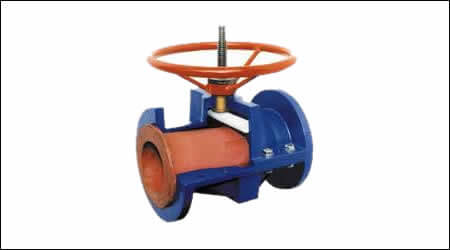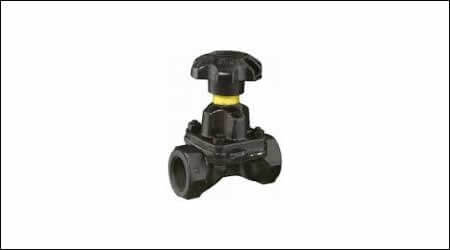Home » Valves »
Diaphragm and pinch valves are similar in terms of function and design. Both have a soft seal rubber element fitted in the valve housing. The main function of that rubber is to stop the flow of material.
Diaphragm valves are available in either straight-through or weir-type pattern.
The straight-through type are generally used in slurry applications and have little, or no, flow restriction.
They are designed to be used in a fully open/fully closed position.
Weir-type generally do not allow for the full flow of the media, as they restrict, therefore reduce, the flow but can be used where flow regulation is required. These valves also require a higher pump capacity to ensure that the material flows at a constant rate after the reduced diameter in the area of the valve.
Soft seated pinch valves are generally used in slurry applications and can be operated by means of a hand-wheel or compressed air into the valve’s casing, this results in the compression of the rubber tube to achieve a completely tight seal. No leakage results in longer service life. When soft seated valves are compared with any other type of valve, they offer unprecedented performance and maintenance.
Non-clogging rubber sleeves offer an extremely quick closing time of the valve.
A pinch valve, also known as a squeeze valve, tube valve, hose valve, bladder valve, rubber membrane valve or soft seated valve, consists of a flexible rubber sleeve enclosed in a sturdy housing. Only compressed air or fluid is needed to squeeze the rubber sleeve and close the valve to shut off or regulate the flow of material in a pipeline. Normally a pinch valve is either open or closed.
Diaphragm and pinch valves are long-lasting, durable, and require little maintenance.
Contact us today for more information on diaphragm and pinch valves. Our expert team will be able to provide you with the necessary knowledge for industry success.



